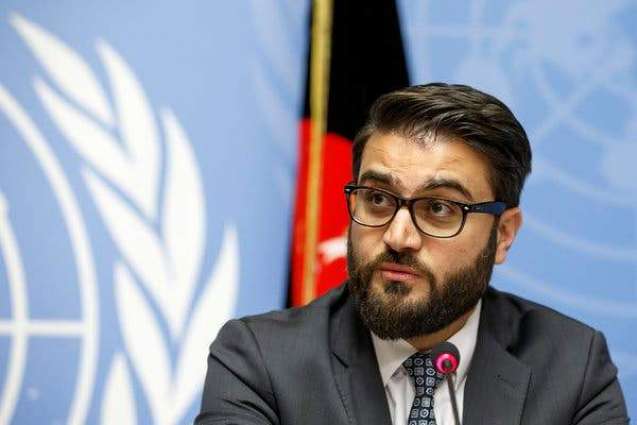While the Islamic State terrorist organization (IS, banned in Russia) has been destroyed in Afghanistan, their ideology survived and is still a threat amid the Taliban's continued support for cross-border terrorism, Afghan National Security Adviser Hamdullah Muhib said in an interview with Sputnik on Friday
MOSCOW (Pakistan Point News / Sputnik - 23rd November, 2019) While the Islamic State terrorist organization (IS, banned in Russia) has been destroyed in Afghanistan, their ideology survived and is still a threat amid the Taliban's continued support for cross-border terrorism, Afghan National Security Adviser Hamdullah Muhib said in an interview with Sputnik on Friday.Muhib visited Moscow to hold talks with colleagues from the Commonwealth of Independent States on the sidelines of the conference of CIS national security advisers on Wednesday.
"IS terrorists established strongholds in several Afghan provinces where they prepared suicide-bombers and trained for the insurgency. Physically, the IS was eliminated from Afghanistan, but the ideologically remains and still constitutes a threat," Muhib said.
According to the official, the Afghan forces succeeded in clearing out all IS strongholds in the country and handing over the terrorists to the government. Talking numbers, he said more than 1,000 terrorists were killed, of which about 600 surrendered and while the rest were hunted down over the past several months.
"Some of them were with families. The majority were not Afghans but foreigners, including from Pakistan, Tajikistan and Uzbekistan," he said.
Pathways for foreign terrorist formations, such as the Islamic Movement of Uzbekistan (banned in Russia), to Afghanistan are oftentimes created by the Taliban radical movement, which has been leading the insurgency against the Afghan government for almost two decades now, Muhib claimed.
"The Taliban, therefore, must be a party to the process of erasing terrorism from Afghanistan," he said.
He also drew the attention of his CIS colleagues to the need to cooperate regionally as terrorism spills into Afghanistan from Central Asia.
The Taliban have been struggling to achieve recognition since being overthrown by the forces of international UN-mandated coalition troops in 2001. The movement was known to have provided al-Qaeda terror group (banned in Russia) and the IS with safe haven in Afghanistan. The Taliban themselves have amply adopted terrorist warfare methods, such as bombings, killings, abduction and rape.
Afghan President Ashraf Ghani has repeatedly suggested pathways to recognizing the Taliban as a political party and engaging in peace talks, but the matter is in a deadlock.




